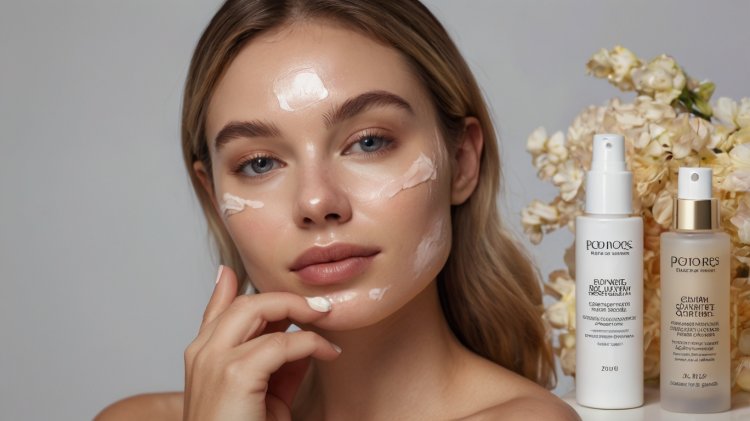The Best ways for Building a Skincare Routine for Sensitive Skin
Struggling with redness, irritation, or dryness? This ultimate guide provides a step-by-step skincare routine specifically for sensitive skin, including product recommendations and key ingredients to look for (and avoid!)

Having sensitive skin can feel like a constant balancing act. Redness, irritation, dryness, and breakouts can be frustrating. But don't worry! This ultimate guide will walk you through building a gentle yet effective skincare routine specifically designed for sensitive skin, helping you achieve a calm, healthy complexion.
What is Sensitive Skin?
Sensitive skin isn't a medical diagnosis, but rather a description of skin that's more prone to reactions. It can manifest in various ways, including:
- Redness: Persistent or occasional flushing.
- Itching or burning: A stinging or prickling sensation.
- Dryness and flaking: Skin that feels tight and rough.
- Rashes and bumps: Small red bumps or hives.
- Reactions to products: Sensitivity to fragrances, dyes, or certain ingredients.
Identifying Your Sensitive Skin Triggers
Understanding what triggers your skin is the first step to managing it. Common culprits include:
- Fragrances: Artificial fragrances are a major irritant.
- Dyes and colors: Certain dyes can cause allergic reactions.
- Harsh chemicals: Sulfates, parabens, and phthalates can strip the skin's natural oils.
- Weather changes: Extreme temperatures and humidity can exacerbate sensitivity.
- Stress: Stress can trigger inflammation and worsen skin conditions.
- Certain fabrics: Wool or synthetic fabrics can irritate the skin.
Building Your Sensitive Skincare Routine: Step-by-Step
A simple routine is often best for sensitive skin. Here's a recommended approach:
Gentle Cleansing
- Choose a mild, fragrance-free cleanser: Look for terms like "hypoallergenic," "fragrance-free," and "for sensitive skin."
- Avoid harsh soaps and sulfates: These can strip the skin's natural oils and cause dryness.
- Use lukewarm water: Hot water can further irritate sensitive skin.
- Pat your skin dry: Avoid rubbing, which can cause friction and irritation.
Hydrating Toner (Optional)
- Choose an alcohol-free toner: Alcohol can be very drying and irritating.
- Look for soothing ingredients: Ingredients like aloe vera, chamomile, and rosewater can help calm the skin.
Soothing Serum
- Look for ingredients like hyaluronic acid, ceramides, and niacinamide: These can help hydrate, strengthen the skin barrier, and reduce inflammation.
- Avoid harsh actives: Retinoids and high concentrations of vitamin C can be too irritating for some sensitive skin types; introduce them slowly and with caution if you choose to.
Gentle Moisturizer
- Choose a fragrance-free, hypoallergenic moisturizer: Look for a formula that's specifically designed for sensitive skin.
- Look for occlusive ingredients like shea butter or ceramides: These help lock in moisture and protect the skin barrier.
Daily Sun Protection
- Use a broad-spectrum sunscreen with SPF 30 or higher: This protects against both UVA and UVB rays.
- Choose a mineral sunscreen with zinc oxide or titanium dioxide: These are generally less irritating than chemical sunscreens.
Key Ingredients for Sensitive Skin:
- Hyaluronic Acid: A powerful humectant that draws moisture to the skin.
- Ceramides: Lipids that help strengthen the skin barrier.
- Niacinamide: A form of vitamin B3 that helps reduce inflammation and redness.
- Aloe Vera: A soothing and anti-inflammatory ingredient.
- Chamomile: A calming and anti-inflammatory ingredient.
Ingredients to Avoid:
- Fragrances (Parfum/Fragrance): A common irritant.
- Sulfates (SLS/SLES): Harsh cleansing agents.
- Parabens: Preservatives that can irritate sensitive skin.
- Alcohol (SD alcohol/Alcohol denat): Can be drying and irritating.
- Essential oils (in high concentrations): While natural, some can be irritating.
Patch Testing: A Must for Sensitive Skin
Always patch test new products before applying them to your entire face. Apply a small amount to a discreet area (like your inner forearm) and wait 24-48 hours to see if any irritation occurs.
Building a Sensitive Skincare Routine for Acne-Prone Skin
If you have sensitive and acne-prone skin, look for gentle, non-comedogenic products. Salicylic acid and benzoyl peroxide can be helpful for acne, but use them sparingly and start with lower concentrations to avoid irritation.
Finding a Dermatologist
If you're struggling to manage your sensitive skin, consult a dermatologist. They can help identify your specific triggers and recommend a personalized treatment plan.









